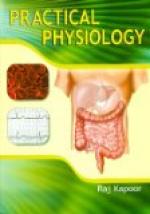[Illustration: Fig. 81.—Showing the Carotid Artery and Jugular Vein on the Right Side, with Some of their Main Branches. (Some branches of the cervical plexus, and the hypoglossal nerve are also shown.)]
[NOTE. “An alcoholic heart loses its contractile and resisting power, both through morbid changes in its nerve ganglia and in its muscle fibers. In typhoid fever, muscle changes are evidently the cause of the heart-enfeeblement; while in diphtheria, disturbances in innervation cause the heart insufficiency. ’If the habitual use of alcohol causes the loss of contractile and resisting power by impairment of both the nerve ganglia and muscle fibers of the heart, how can it act as a heart tonic?’”—Dr. Alfred L. Loomis, Professor of Medicine in the Medical Department of the University of the City of New York.]
200. Other Results from the Use of Intoxicants. Other disastrous consequences follow the use of intoxicants, and these upon the blood. When any alcohol is present in the circulation, its greed for water induces the absorption of moisture from the red globules of the blood, the oxygen-carriers. In consequence they contract and harden, thus becoming unable to absorb, as theretofore, the oxygen in the lungs. Then, in turn, the oxidation of the waste matter in the tissues is prevented; thus the corpuscles cannot convey carbon dioxid from the capillaries, and this fact means that some portion of refuse material, not being thus changed and eliminated, must remain in the blood, rendering it impure and unfit for its proper use in nutrition. Thus, step by step, the use of alcoholics impairs the functions of the blood corpuscles, perverts nutrition, and slowly poisons the blood.
[Illustration: Fig. 82.—The Right Axillary and Brachial Arteries, with Some of their Main Branches.]
[NOTE. “Destroy or paralyze the inhibitory nerve center, and instantly its controlling effect on the heart mechanism is lost, and the accelerating agent, being no longer under its normal restraint, runs riot. The heart’s action is increased, the pulse is quickened, an excess of blood is forced into the vessels, and from their becoming engorged and dilated the face gets flushed, all the usual concomitants of a general engorgement of the circulation being the result.”—Dr. George Harley, F.R.S., an eminent English medical author.
“The habitual use of alcohol produces a deleterious influence upon the whole economy. The digestive powers are weakened, the appetite is impaired, and the muscular system is enfeebled. The blood is impoverished, and nutrition is imperfect and disordered, as shown by the flabbiness of the skin and muscles, emaciation, or an abnormal accumulation of fat.”—Dr. Austin Flint, Senior, formerly Professor of the Practice of Medicine in Bellevue Medical College, and author of many standard medical works.
“The immoderate use of the strong




